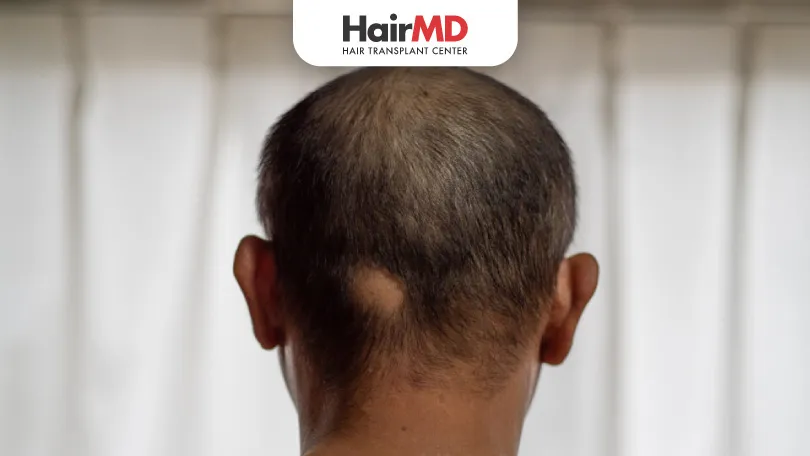24th March, 2024
Alopecia areata is a condition where the body’s immune system mistakenly attacks hair follicles, causing hair loss on the scalp and other parts of the body. While treatments are available to help manage hair loss, there is currently no cure for alopecia areata.

This disorder comes in three main types: alopecia areata (affecting small patches of hair), alopecia totalis (complete loss of scalp hair), and alopecia universalis (loss of hair across the entire body). Understanding the type of alopecia is important for choosing the right treatment options and managing its effects.
Table Of Content
- Causes of Alopecia Totalis
- Causes of Alopecia Universalis
- Let’s Talk About Some of the Early Signs of Alopecia
- Conclusion
Causes of Alopecia Totalis
Causes of Alopecia Universalis
Let’s Talk About Some of the Early Signs of Alopecia
Conclusion
Popular Q&As
Why Patchy Hair Loss?
Uncover the reasons behind patchy hair loss.
What is Alopecia Areata?
Understanding the Causes and Impact of This Hair Loss Condition!
What are the Home Remedies for Alopecia Areata?
Find effective home remedies to help manage alopecia areata and support hair growth naturally!
We Got Your Back! Ask Us Anything On Your Mind!
Reach out to us on


